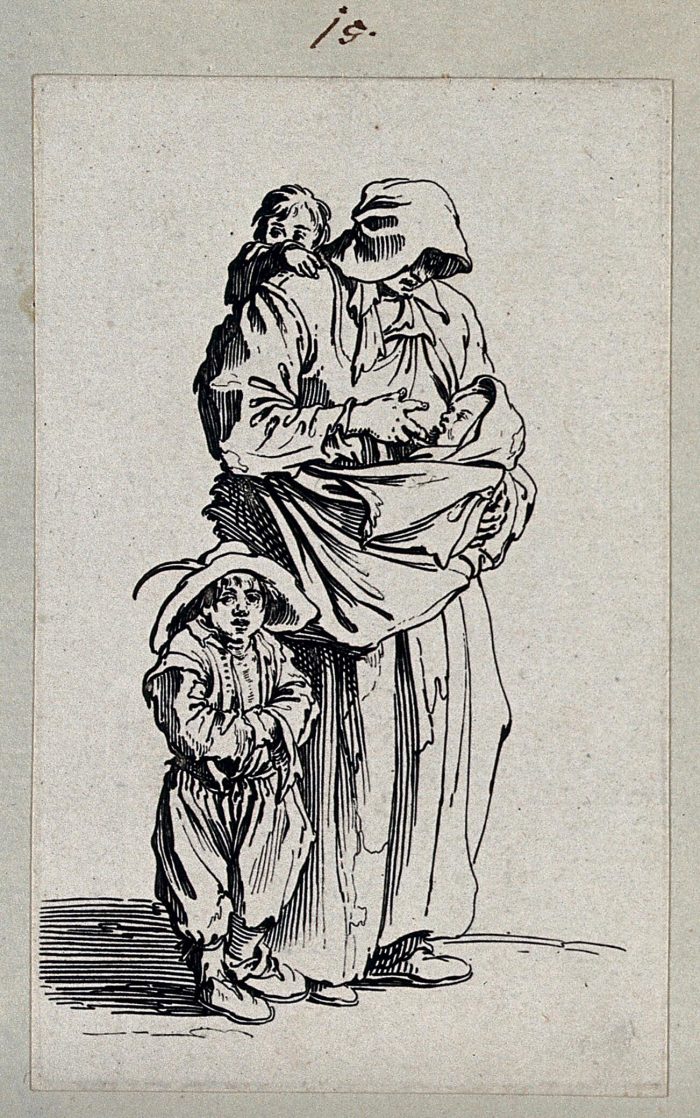I’m currently transcribing Stoke-by-Nayland’s parish registers, and I was rather confused by a marriage that took place on 23rd July 1622 between:
Amye Wright Grasse widow and Nathaniel Ratcatcher.
First of all, the entry is very unusual, giving the bride’s name before the groom’s. Secondly, it looks like Amy has two surnames, and that the groom’s surname has been missed off, giving his occupation instead.
So what were their names? Amy Wright, or Amy Grasse? Nathaniel Wright, or Nathaniel Grasse?
I carried on transcribing and met another, on 12th May 1633:
John Gallant widd. to Susan Clarke grease widd.
I realised then that “grease” or “grasse” wasn’t a surname, and the expression “grass widow” came to mind.
The more modern usage of the term tends to mean a woman whose husband is absent a lot. Some take the phrase literally, using it to describe a woman whose husband is off play golf a lot – on grass. Hence a grass widow. The expression pops up in newspapers in the 1800s, clearly meaning a woman whose husband is away. A short story in the Fife Free Press on 31st March 1883 by Henry Frith called “No Robbery” is set in India, and several times refers to a woman in the story as a “grass widow”. Describing a club near Himalayas, he writes:
There are many “grass-widows” though up there, and amongst them a very pretty young woman, who is a great favourite with the men on leave, and tolerated by the women. But no one had much to say against her. Her husband was away on the steaming plains.
The Toronto Daily Mail, on 16th Mach 1889, contains a column called Women’s Kingdom: Facts and Fancies for the Fair Sex. Evidently aimed at women readers, the author writes at some length about grass widows. According to the author:
It requires a self-reliant, level-headed, self-supporting matron to fill the bill of the grass widow, who is, as a rule, either a naval or a colonial creation… Grass widowhood has grown to be a term of reproach… Conventionality decrees that people who are united should live together, regardless of place and circumstances; and woe be to the bold individual who violates the social decree.
But where does the term come from? The Toronto Daily Mail author claims that it’s a corruption of the French, “par la Grace de Dieu” – a widow by the grace of God. However, the earlier meaning of grass widow throws light on the terms origins.
Because earlier than that, a grass widow was a mistress who had been thrown aside, or a woman who’d had an illegitimate child. “Grass” is thought to come from the grass of a common bed, or even the idea of a couple being intimate, shall we say, on the grass, instead of on a bed. Given the strong Puritan bent in the area around Stoke-by-Nayland at the time, we shouldn’t be surprised if a term critical of a woman’s morals would appear in a parish register when “spinster” or “single woman” would’ve done. “Grass widow” isn’t an official marital status, but is a moral judgement instead.
The derogatory tone that the Toronto Daily Mail author picks up in the expression, and which is implied when Henry Frith tells us that the grass widow in the club is popular with the men and tolerated by the women, suggests that although the meaning changed, its original meaning lingered in the background.
So this leaves us with the grass widows of Stoke-by-Nayland. I found two more. On 20th September 1633, William Blyth, a widower, married Ester Rayson, “gr. widd” – presumably a grass widow. And one even pops up in the burial register. On 6th August 1624, Elizabeth Chapman, “gra. widowe”, was buried.
I searched for these grass widows in the parish register. First of all, I found Elizabeth Chapman. On 30th January 1613/4, Larrence, the son of Elizabeth Chapman, was baptised in Stoke-by-Nayland. No father’s name is mentioned, so the child was presumably illegitimate. On 15th May 1605, a boy called John was baptised in Stoke-by-Nayland, “son of Amye Wright base borne the reputed father John Chandler.”
Of course, this business of the Stoke-by-Nayland grass widows isn’t just an interesting peak at old usages of expressions. It could cause quite a problem for anyone researching their family tree. If a woman is described as a widow in a parish register, we would expect her surname to be different from her maiden name. Anyone unaware of grass widow’s original meaning will be very confused as they try to find out what the grass widows’ maiden names were. As you can see, I was confused right from the start, wondering if “Grasse” was a surname!
So always try to think like someone from the past when doing your research. Look at the original register images if you can, in case a transcriber has missed off an important term – such a “grass” for a widow, which could give you an important clue for your research.

